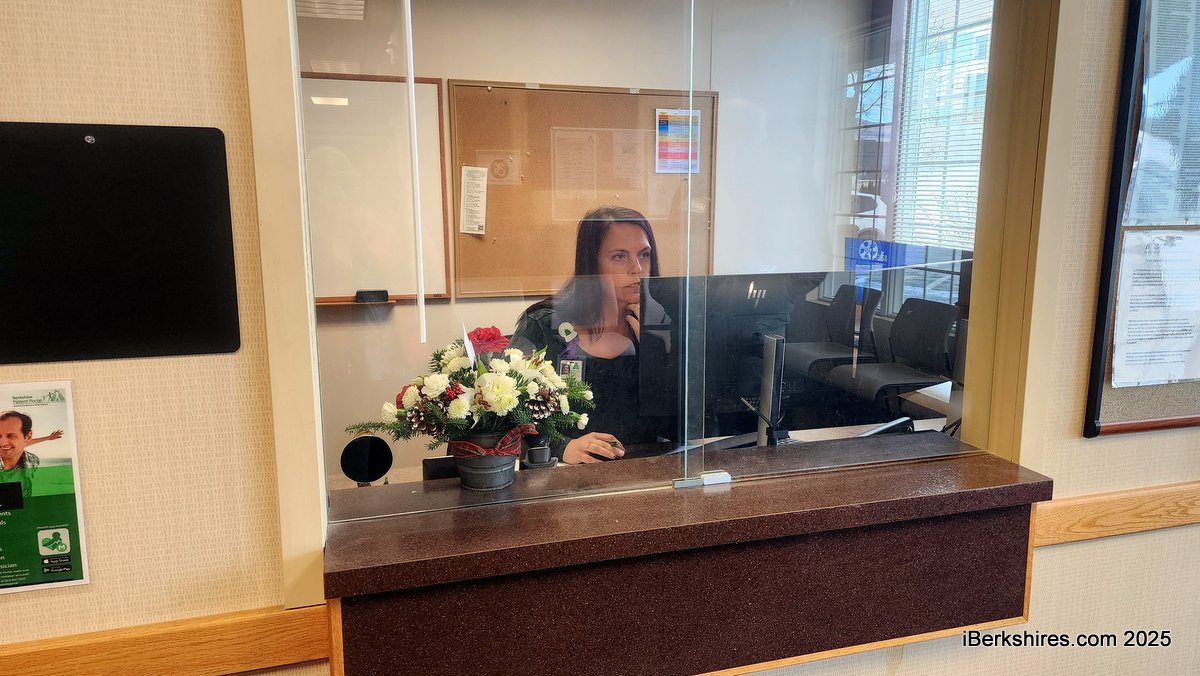WILLIAMSTOWN, Mass. — A resident Monday asked the Select Board to take a stand on a humanitarian crisis unfolding half a world away.
Benjamin Grimes addressed the board at the end of its meeting to ask the elected body to pass a resolution supporting the Palestinian people of Gaza and calling for a ceasefire in Israel's ongoing campaign to root out the Hamas militant faction.
"I won't traumatize us by recounting the atrocities, except to note that the death toll in Gaza is now over 11,200 people, including more than 4,000 children," Grimes said in a prepared statement delivered during the board's public comment period. "Try to imagine all the children here in Williamstown being killed by bombs — and then triple it."
The board, which has a practice of not acting on topics not warned on the meeting's agenda, took no action on Grimes' request.
On Tuesday, Chair Jeffrey Johnson said he would have to think about whether to put the issue on the agenda for the Select Board's next meeting.
"Regarding having the resolution as written on the agenda for discussion, I need to think hard about this over the next few days," Johnson wrote in an email responding to a request for comment. "Most of all I was happy an individual citizen felt comfortable to come forward to speak their truth, and that this chair allowed them the floor without cutting them off or deeming their public comment inappropriate for the meeting,"
Several members of the five-person board have argued in the past that the Select Board should not weigh in on topics that do not have a direct relation to municipal government.
Grimes' appeal explained why he believes the escalating violence that began with Hamas' Oct. 7 attack on Israel is directly relevant to the Select Board's constituents.
"You, the Williamstown Select Board, represent a community that is multifaceted and diverse," Grimes said. "It is a community that includes Palestinians, among many other Arab peoples, as well as Jews and Muslims of all backgrounds, and refugees from all parts of the world, all of whom may be feeling especially fraught and vulnerable at this time. The Select Board can take action to support these community members and make Williamstown a safer, more inclusive place."
Grimes cited a city in Northern California that passed a resolution similar to the one he is seeking from the Williamstown board. And he called on the panel to express town residents' desire for a ceasefire to U.S. Rep. Richard Neal and U.S. Sens. Elizabeth Warren and Edward Markey.
In other business on Monday, the board learned that the town has found a successor to longtime Health Inspector Jeffrey Kennedy, who retired earlier this year.
Town Manager Robert Menicocci told the board that Ruth Russell started in the job on Monday, and as part of her on-boarding, the Select Board needed to approve an intermunicipal agreement with the town of Great Barrington, which will help support Russell with advice and training.
"Ruth comes to us with some background in the appropriate areas of science and a degree in the appropriate areas but is going to need a little bit of support in the particulars around the health inspector role," Menicocci told the board. "We did a similar effort on behalf of Great Barrington some time ago, where our health inspector, Jeff Kennedy, helped them with their newly onboarded person, helped them learn the ropes.
"Turnabout is fair play, and we're looking to do the same arrangement with Great Barrington. The person that we helped get up to speed is now going to help our person get up to speed."
Much of Monday's meeting was dedicated to discussion about priorities for the fiscal 2025 budget, which Menicocci and town staff are currently developing. He told the board he is aiming to build a "maintenance budget" that preserves the current level of town services while coping with the spiraling cost of delivery.
Unlike in some recent years, Menicocci does not have the benefit of projected higher revenues from growth in the property tax base, he told the board.
Continuing a conversation that began last spring in town, he said he is studying the issue of dog leashes on town property, specifically as it relates to the Spruces Park. He said he expects to be able to bring the Select Board some options for action items in January.
| If you would like to contribute information on this article, contact us at info@iberkshires.com. |
















